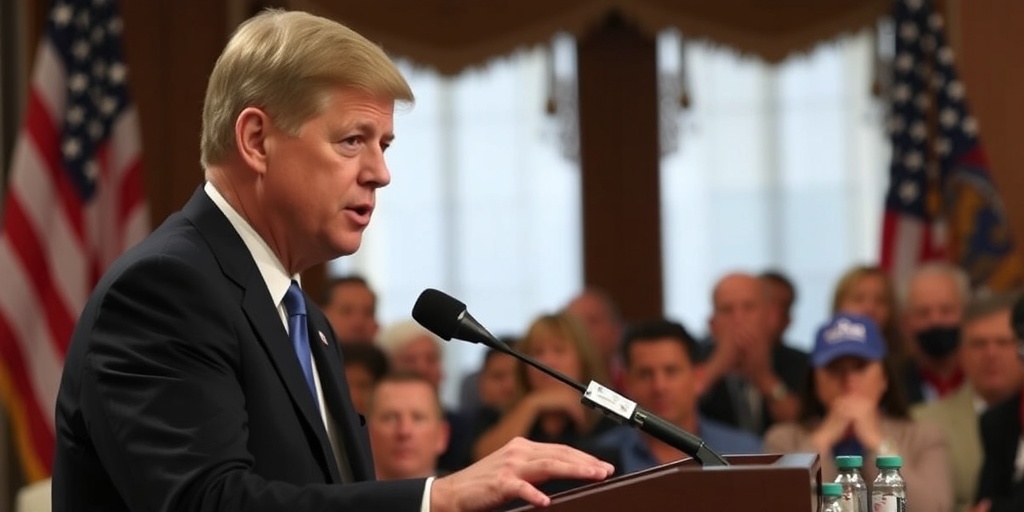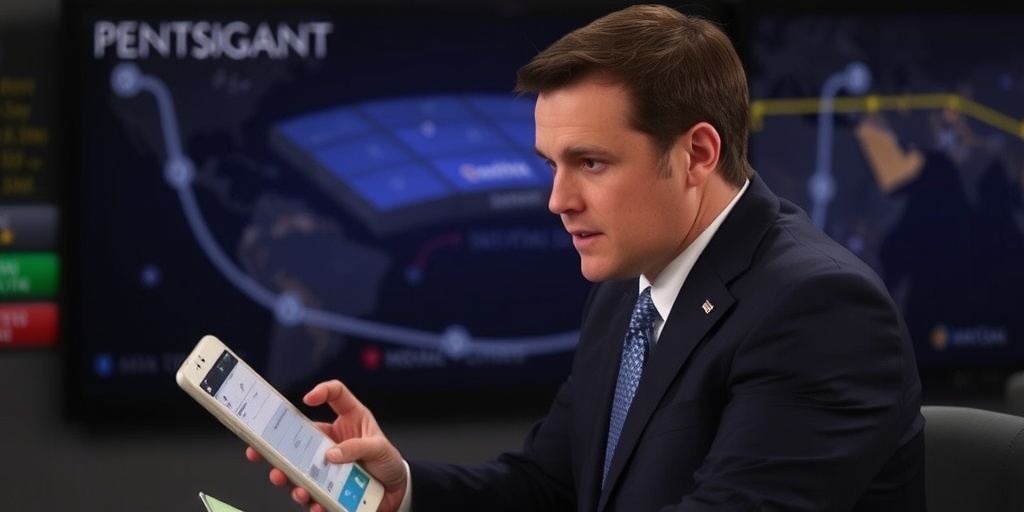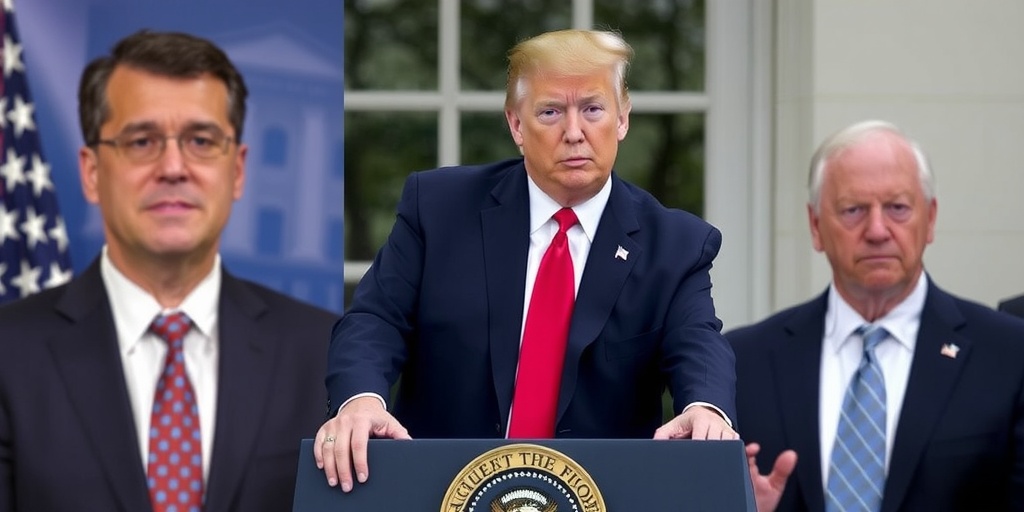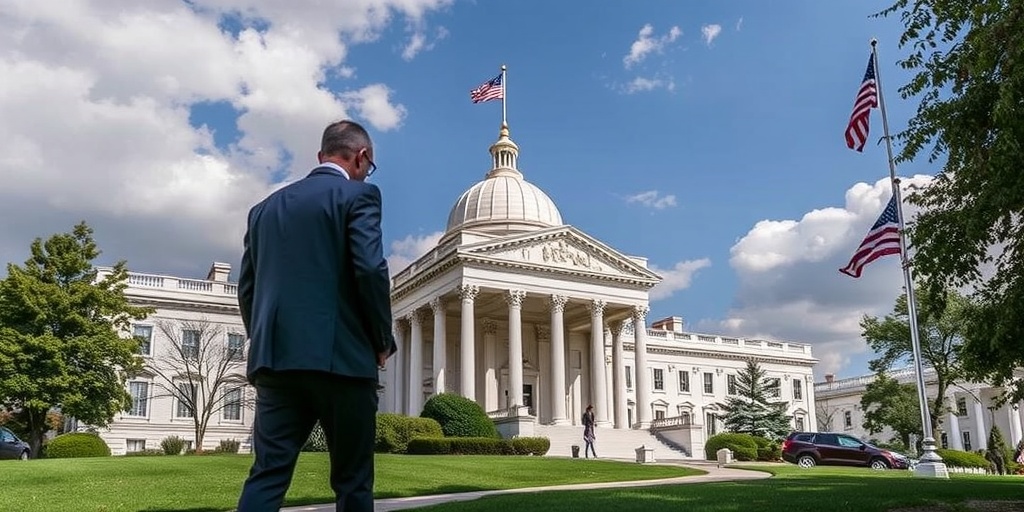Now Reading: G.O.P. Skeptic Addresses Kennedy’s Stance on Measles, Cod Liver Oil, and Vaccines
-
01
G.O.P. Skeptic Addresses Kennedy’s Stance on Measles, Cod Liver Oil, and Vaccines
G.O.P. Skeptic Addresses Kennedy’s Stance on Measles, Cod Liver Oil, and Vaccines

Senator Cassidy Faces Difficulties with Vaccine Advocacy Amid Measles Outbreak
Senator Bill Cassidy, a Louisiana Republican and medical doctor, is grappling with the implications of his vote to confirm Robert F. Kennedy Jr. as Secretary of Health and Human Services under former President Trump. Cassidy’s concerns about Kennedy’s significant role as a vocal critic of vaccinations have become starkly relevant as a measles outbreak has recently emerged in West Texas, resulting in the tragic death of an unvaccinated child.
As the chairman of the Senate Health Committee, Cassidy has been deeply involved in the ongoing public health crisis. When questioned about Kennedy’s stance on vaccinations, Cassidy pointed to an opinion piece published by Kennedy in Fox News Digital. In the article, Kennedy encouraged parents to consult with their doctors regarding vaccinations while framing the decision as a personal choice. Cassidy interpreted this as a call for people to consider vaccination, suggesting that despite Kennedy’s characterization of vaccination as a personal decision, the overall gist of his message leaned towards support for vaccines.
In the wake of the West Texas outbreak, Cassidy stated the crisis highlighted the critical need for a unified approach to vaccinations. He acknowledged that Kennedy’s recent statements on vaccination, while sometimes ambiguous, echoed an essential message: “Let’s get vaccinated!”
Kennedy’s ascent to the position of health secretary has brought forth a shift in perspectives surrounding vaccinations within the Republican Party, creating friction among party members. As the founder of the nonprofit organization Children’s Health Defense and a former presidential candidate, he has repeatedly downplayed the established benefits of vaccination, promoting controversial views that link the measles, mumps, and rubella (MMR) vaccine to autism—a claim that has been widely discredited.
While Kennedy has attempted to navigate a middle ground since taking office, avoiding a complete rejection of vaccines, his reluctance to offer an unambiguous endorsement has elicited criticism from both public health experts and his supporters. “This is the bare minimum one can do in the middle of a measles outbreak,” remarked Dr. Adam Ratner, a pediatrician who has raised alarms about a resurgence of measles due to declining vaccination rates.
Kennedy’s former communications director, Del Bigtree, defended the health secretary’s approach, claiming that Kennedy is committed to offering parents various options regarding vaccinations, allowing them to make informed decisions. However, public health advocates argue that the best and only proven method to prevent measles is vaccination.
Cassidy’s support for vaccinations is rooted in his background as a liver specialist who has dedicated his career to treating uninsured patients in Louisiana’s charity hospital system. Although he is fervently pro-vaccine, the political landscape complicates his position. With a primary challenger in the upcoming 2026 elections, Cassidy faces the dilemma of appeasing an increasingly vaccine-skeptical Republican electorate while supporting public health initiatives.
The “medical freedom” movement, which Kennedy champions under the slogan “Make America Healthy Again,” has gained considerable traction within conservative circles, particularly following the COVID-19 pandemic. Many Republicans have come to oppose vaccine mandates, including those for school-aged children. Nearly 1,000 candidates, primarily Republicans, have run for office with the endorsement of Stand for Health Freedom, a Florida nonprofit pushing for easier opt-out options for school vaccinations.
For Cassidy and other Republicans wary of Kennedy’s influence, the ongoing measles outbreak presents a critical moment of reckoning. Republican strategist Whit Ayres noted that the risks associated with Kennedy’s views on vaccines were well-known at the time of his nomination and confirmation.
While the spread of measles in Texas can be traced back to the unvaccinated Mennonite community, which has long posed a risk for outbreaks, Kennedy has minimized the severity of the situation, stating that such occurrences are “not unusual.” His recent statements have included promoting alternative treatments for measles, such as vitamin A and cod liver oil. Critically, however, he has yet to explicitly advocate for vaccination, leaving many public health officials frustrated.
As the outbreak worsens—with nearly 160 reported cases, 22 hospitalizations, and ongoing efforts by the Centers for Disease Control and Prevention (CDC) to support local health officials—Cassidy appears to endorse Kennedy’s management of the crisis. While he publicly praised the handling of the situation, he continues to question fellow nominees about vaccine-related issues, particularly the debunked theory linking vaccines to autism.
At a recent Senate panel, Cassidy confronted Dr. Jay Bhattacharya, Trump’s nominee for the National Institutes of Health, about potential funding for research into this discredited theory. Flustered by the suggestion, Cassidy argued that further studies would squander taxpayer dollars and detract from crucial research into the true origins of autism.
Kennedy’s confirmation was contingent on several concessions he made to earn Cassidy’s support, including commitments to retain a committee of experts advising the CDC on vaccines and ensuring that the narrative surrounding vaccinations would not be corrupted by misinformation. As tensions grow among Republicans regarding vaccination policies, Cassidy continues to navigate a complex landscape that pits public health against a growing faction of vaccine skepticism within his party.
Stay Informed With the Latest & Most Important News
Previous Post
Next Post
-
 01New technology breakthrough has everyone talking right now
01New technology breakthrough has everyone talking right now -
 02Unbelievable life hack everyone needs to try today
02Unbelievable life hack everyone needs to try today -
 03Fascinating discovery found buried deep beneath the ocean
03Fascinating discovery found buried deep beneath the ocean -
 04Man invents genius device that solves everyday problems
04Man invents genius device that solves everyday problems -
 05Shocking discovery that changes what we know forever
05Shocking discovery that changes what we know forever -
 06Internet goes wild over celebrity’s unexpected fashion choice
06Internet goes wild over celebrity’s unexpected fashion choice -
 07Rare animal sighting stuns scientists and wildlife lovers
07Rare animal sighting stuns scientists and wildlife lovers




















